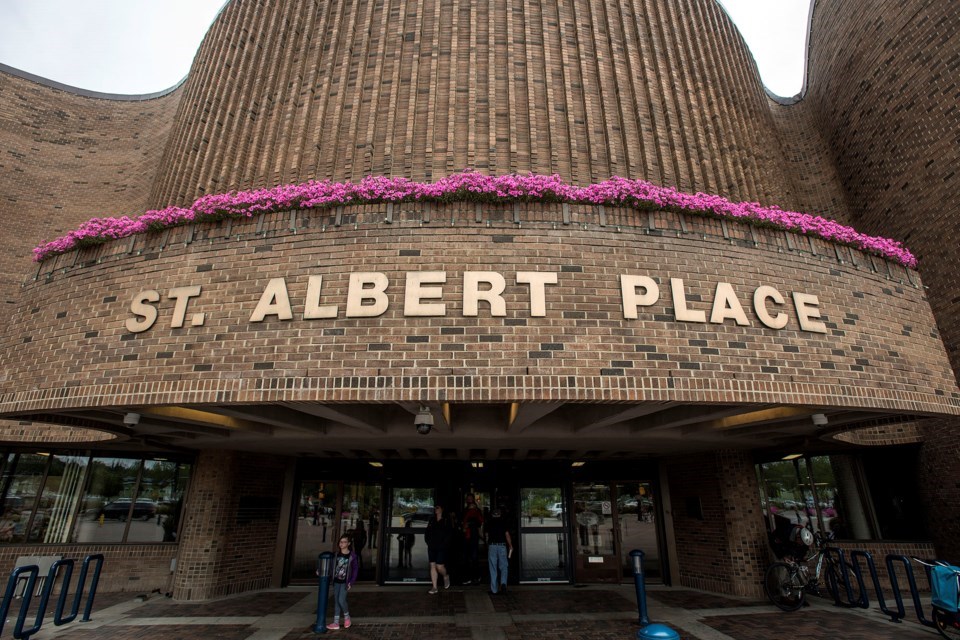After making some last minute 2023 budget adjustments earlier this month, council formally approved the 2023 tax rate bylaw, which finalizes this year's property tax increase at 4.1 per cent.
With the bylaw now in place, this year's tax notices will start going out. Residents can expect to receive them on or shortly after May 29 via Canada Post.
With the 4.1 per cent increase included, a report to council explains, the 2023 mill rate — or tax levied per set amount of property value — for residential homes is 8.23, meaning that for every $100,000 of assessed property value homeowners will be taxed $822.52.
For non-residential property owners, this year's mill rate is 12.54, meaning property owners will pay $1,253.53 for every $100,000 of property value.
Overall, the city's total tax levy will amount to just shy of $125 million.
In terms of how the levy is split, residential property taxes will contribute 79.1 per cent of the total, while non-residential property taxes will make up the remaining 20.8 per cent.
In 2022 the municipal tax split was 79.8 per cent residential and 20.2 per cent non-residential, administration's report to council says.
Other tax impacts that residential property owners will see this year, administration's report states, include a 2.2 per cent increase to the provincially determined education requisition, which is used to fund public schooling.
The 2.2 per cent increase, which is only applied to residential property owners by directive of the provincial government, means that homeowners will see an education requisition mill rate of 2.46, and will pay $246.34 for every $100,000 of assessed property value.
Non-residential property owners will be contributing slightly less to the education requisition this year, as the provincial government has issued a 2.5 per cent decrease to this ownership group. The 2023 education requisition mill rate for non-residential property owners will be about 3.8, which means $379.59 will be levied for every $100,000 of assessed property value.
Another effect property owners will see on their tax notices is a 9.2 per cent increase to the Homeland Housing requisition.
Homeland Housing is a public non-profit organization that manages seniors housing facilities in 11 municipalities in Alberta, including St. Albert, Morinville, and Sturgeon County.
The new residential mill rate for this requisition is 0.08, meaning $8.18 will be levied for every $100,000 of assessed property value. The new non-residential mill rate is 0.12, or $12.57 for every $100,000 of property value.
The Senior Homeowners Tax Grant Program will continue this year, administration's report to council read.
The program provides a $200 tax grant per eligible household. Last year, the report says, there were 657 eligible property owners to receive the grant.
Mayor Cathy Heron said while some may see a 4.1 increase as a steep hike, the increase is close to the rate of inflation, which has affected how much it costs the city to operate and maintain services.
“The majority of our budget is salaries and our people deserve to have cost of living increases, and the rest of it is generally purchasing a basket of goods very similar to going to the grocery store — we have a basket of goods that we need to buy (such as) gas for our trucks and diesel for the buses — and that's all going up,” she said. “You can't run a city on zero per cent tax increases and people have a hard time understanding that.”
“If we were to do less, then we would be facing service cuts or crumbling infrastructure, which St. Albert doesn't ever allow.”
Likewise, Coun. Sheena Hughes said although the 4.1 per cent increase is higher than many would prefer, the increase is much lower than the roughly nine per cent increase forecast when the draft budget was presented in October.
“We've worked really hard to get this down,” Hughes said. “I brought forward a lot of motions to make it happen and got the support of council, so it's gone down by more than 50 per cent.”
“As a result of the decisions in this budget, we have also been able to lower next year's budget expectations for tax increases,” she said, referring to the 4.8 per cent property tax increase forecast for next year.




